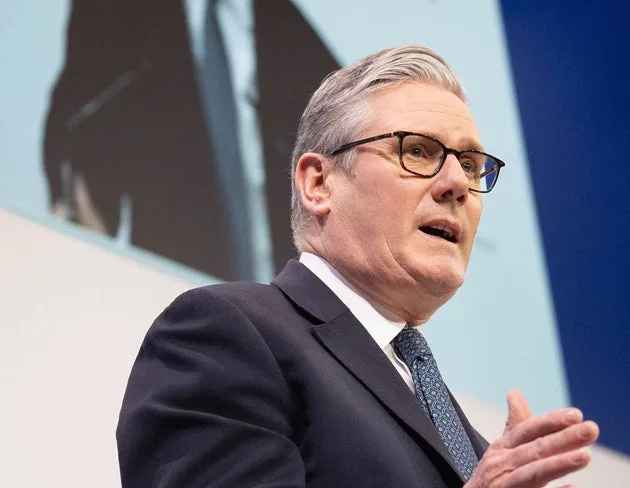Trump's Fury Erupts: Billion-Dollar BBC Lawsuit Threat Over 'Doctored' Panorama Speech

The British Broadcasting Corporation (BBC) is currently engulfed in a profound crisis, triggered by an impartiality row over the editing of a Donald Trump speech and intensified by accusations of institutional bias. The turmoil culminated in the resignations of Director General Tim Davie and Head of News Deborah Turness, drawing severe criticism from domestic political figures and the former US President himself.
The controversy began with an edition of the BBC's flagship programme, Panorama, titled 'Trump: A Second Chance?'. During a segment on the January 6 Capitol Hill riots, two clips of Donald Trump's speech were spliced together. The documentary portrayed Trump telling supporters he would walk with them to the Capitol to "fight like hell," when in reality he had first urged them "to peacefully and patriotically make your voices heard," with the "fight like hell" remark occurring an hour later. The lack of clear context for this edit sparked outrage and fueled accusations of misleading journalism.
The crisis deepened following a leaked 19-page report by Michael Prescott, a former external adviser to the BBC’s editorial standards committee. Prescott accused the corporation of not only doctoring Trump’s speech but also censoring debates on transgender issues and showing bias in its Gaza coverage. Internal sources described intense disputes within the BBC Board as “armed combat” and “political interference.” BBC presenter Nick Robinson highlighted a “paralysis” at the top, noting the Board’s refusal to approve an apology statement drafted by BBC News executives that would have acknowledged the editing mistake but insisted there was no intent to mislead.
Amid the internal strife, Tim Davie resigned after five years as director-general, attributing his decision partly to the “current debate around BBC News.” He admitted that “some mistakes have been made” and took “ultimate responsibility.” Deborah Turness, CEO of BBC News, also stepped down, stating the controversy had reached a point “causing damage to the BBC.” Despite resigning, she denied claims of institutional bias, asserting that BBC News is not institutionally biased and remains the “world’s most trusted news provider.”
External reactions were swift. Donald Trump condemned the BBC as “corrupt,” “very dishonest,” and a “terrible thing for Democracy” on Truth Social. Reform UK leader Nigel Farage echoed these sentiments, warning that the BBC would have “no future” unless it delivered “straight news” and calling the corporation “institutionally biased for decades.” Farage suggested a slimmed-down, subscription-based BBC, labeling the current licence fee “wholly unsustainable.” Former Prime Minister Boris Johnson also threatened to withhold his licence fee unless Davie addressed the incident or resigned.
However, the BBC found defenders. Downing Street, through Sir Keir Starmer’s spokesman, rejected claims of corruption and bias, emphasizing the BBC’s “vital role in an age of disinformation” and the necessity of a “robust, impartial British news service.” Government minister Louise Sandher-Jones highlighted the corporation’s trusted output across a range of issues.
Internally, Nick Robinson criticized the “paralysis” within the BBC Board and the high-stakes power struggle, questioning why Davie and Turness had not explicitly explained what they “actually got wrong.” He noted there were no complaints about the Trump speech editing when Panorama aired in 2024. Sir Craig Oliver, former BBC News controller, criticized the BBC’s governance for creating a “vacuum” and failing to defend the institution against attacks, even from the US President.
The future funding model of the BBC, particularly the licence fee, has become a central issue. With upcoming Royal Charter renewal negotiations, the government is expected to consider “how the BBC can continue to prosper supported by a sustainable funding model.” Politicians from across the spectrum, including Liberal Democrat leader Sir Ed Davey and Conservative Party leader Kemi Badenoch, have called for “top-to-bottom” reform, signaling that the BBC must change to rebuild its reputation and secure its future.
You may also like...
Super Eagles Fury! Coach Eric Chelle Slammed Over Shocking $130K Salary Demand!
)
Super Eagles head coach Eric Chelle's demands for a $130,000 monthly salary and extensive benefits have ignited a major ...
Premier League Immortal! James Milner Shatters Appearance Record, Klopp Hails Legend!

Football icon James Milner has surpassed Gareth Barry's Premier League appearance record, making his 654th outing at age...
Starfleet Shockwave: Fans Missed Key Detail in 'Deep Space Nine' Icon's 'Starfleet Academy' Return!

Starfleet Academy's latest episode features the long-awaited return of Jake Sisko, honoring his legendary father, Captai...
Rhaenyra's Destiny: 'House of the Dragon' Hints at Shocking Game of Thrones Finale Twist!

The 'House of the Dragon' Season 3 teaser hints at a dark path for Rhaenyra, suggesting she may descend into madness. He...
Amidah Lateef Unveils Shocking Truth About Nigerian University Hostel Crisis!

Many university students are forced to live off-campus due to limited hostel spaces, facing daily commutes, financial bu...
African Development Soars: Eswatini Hails Ethiopia's Ambitious Mega Projects

The Kingdom of Eswatini has lauded Ethiopia's significant strides in large-scale development projects, particularly high...
West African Tensions Mount: Ghana Drags Togo to Arbitration Over Maritime Borders

Ghana has initiated international arbitration under UNCLOS to settle its long-standing maritime boundary dispute with To...
Indian AI Arena Ignites: Sarvam Unleashes Indus AI Chat App in Fierce Market Battle

Sarvam, an Indian AI startup, has launched its Indus chat app, powered by its 105-billion-parameter large language model...





